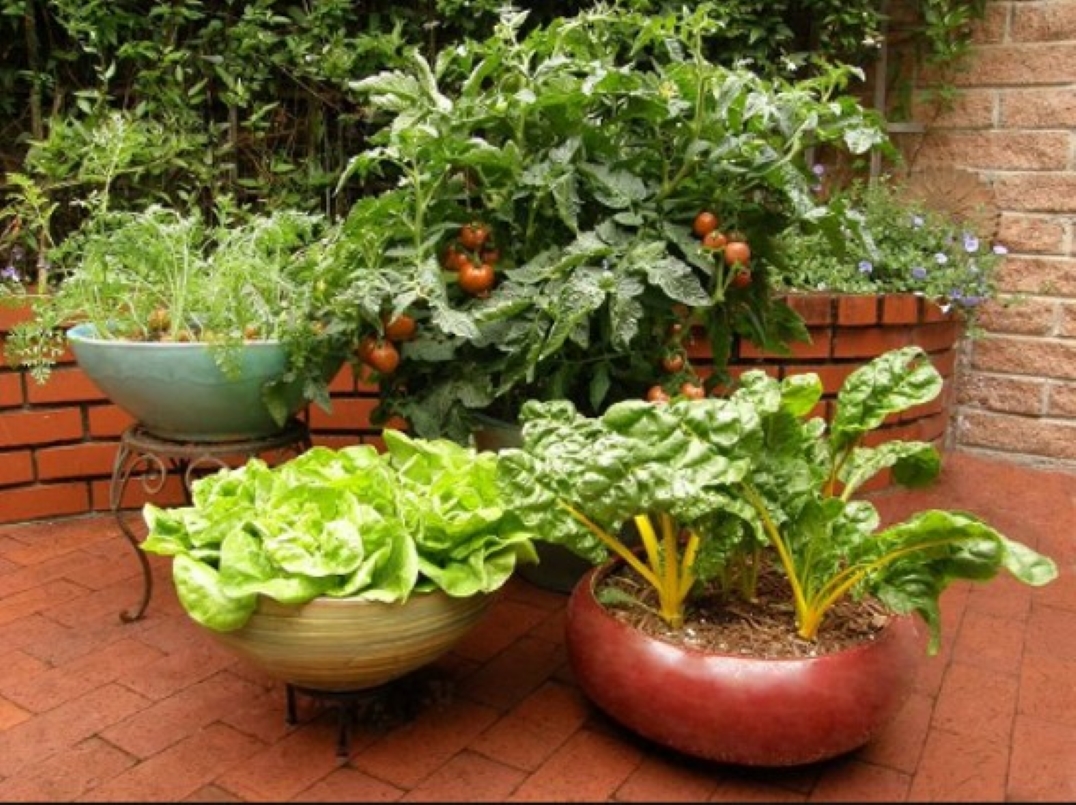Container Gardens versus Traditional Gardens
by Anthony Reardon, Vegetable and Small Farms horticulture agent

Container vegetable gardening is a topic that I have had a love-hate relationship with. While I love growing fresh and nutritious produce for home use in compact areas, the execution and effort required can leave much to be desired. In previous years, eager to container garden, I have purchased quality soil, and invested in hefty buckets, strong supports, and hearty plants. Still, once the plants were in place, I may have also neglected to note a few crucial factors….
Unfortunately, container gardening does not equate to “set-it-and-forget-it” gardening. Many of the same influences working against in-ground gardens affect container gardens. Where they can then begin to differ, however, is in the severity of those influences’ effects on the plants.
Adequate moisture in containerized soil, for example, requires significantly more attention and effort as the soil itself likely isn’t mulched or insulated. This equates to more time spent watering and checking soil moisture to ensure adequate water. Conversely, adequate drainage can be just as important of a monitoring factor, with faulty container setups being the cause of many overwatering headaches.
Soil temperature is another essential factor that requires additional attention with container gardens, as the lack of insulation leads to a harsher overall contrast of temperature extremes. While this can be utilized in your favor, certain crops have specific preferences for very warm or cool soil. it must be done tactfully, with forethought into chosen crops. Selecting where the container will be placed becomes equally important.
In addition, fertilization must be watched closely with container gardens as the only nutrients available to the plants are those in their limited soil space and will require re-supplementation of nutrients often used up by the plants. For this reason, gardeners frequently employ a low-range, slow-release fertilizer in their raised beds or containers –to continually feed their plants low amounts of macronutrients. Certain crops, however, will perform better with certain macronutrients either present in excess or omission. So, the answer to fertilizing containers cannot be a “one size fits all” with even levels of nutrients. Instead, it should be tailored to the crops being worked with.
In short, I have been guilty of equating container gardening with easy gardening, when it is just gardening in another form. Is it more difficult? No. The problems to mitigate may differ slightly from an in-ground setting, and some issues may be easier to address (infested plants, for example, can be relocated and quarantined). So, don't be discouraged; container gardening is a feasible and rewarding endeavor.
By being aware of these potential issues specific to container gardens, you can take the opposite approach and instead develop a love-love relationship with the practice. When you adequately plan and allocate the attention they need, your compact garden will be the productive garden of your dreams, and the satisfaction of overcoming these challenges will be a its own reward.
